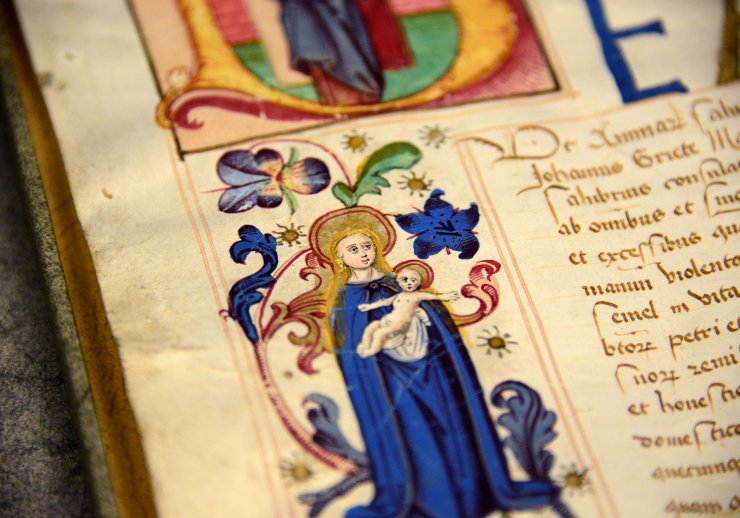History of the Rhineland Division
The Rhineland Division of the Landesarchiv was founded in 1832 as the central archive for the northern part of what was then the Prussian Rhine Province. Its task was, on the one hand, to bring together the scattered documents and files of the old territorial administrations and the abolished monasteries and foundations in one place and to secure them for the long term. On the other hand, it was also to take over the documents of the new Prussian authorities in the administrative districts of Cologne, Düsseldorf, and Aachen, which had been established in 1815. While the focus until the end of the 19th century was on organizing and cataloging the old holdings from the period before 1815, the tasks of the administrative archive increased significantly from the first half of the 20th century onwards.
With the founding of the state of North Rhine-Westphalia in 1946 and the associated reorganization of the administration, additional tasks were assigned to the former provincial archive. From 1952 onwards, the archive was also responsible for the records of the state ministries and higher authorities. This new task was reflected in the name of the archive, which was henceforth called the Landeshauptarchiv (State Main Archive) and, since 1961, the Hauptstaatsarchiv (Main State Archive). In 1970, a separate department was established in the Main State Archive for the written records of political parties and associations, for the estates of important figures from politics and society, and for image, film, and audio documents.
The archiving of civil status documents in one location dates back to the Second World War. From around 1942, the former State Genealogical Office of the Rhine Province at Ehrenbreitstein Fortress in Koblenz compiled church records and civil status records (with supplementary files) dating from before 1900. After the Second World War, the new archive administration of the Rhine Province, or rather its successor, the State Archive Administration of North Rhine-Westphalia, took over the documents relating to its district as a civil status archive. This was established in Brühl and made civil status documents available to the administration, citizens seeking legal advice, and, last but not least, family history researchers.
As a result of the recent reform of civil status law, which came into effect in large part on January 1, 2009, with the introduction of rolling continuation periods, the civil status registers have since been continuously supplemented by submissions from the lower registry office supervisory authorities, beginning with the death registers for the years 1938–1980.
In 2008, the Hauptstaatsarchiv Düsseldorf and the Personenstandsarchiv Brühl were merged to form the Rhineland Division of the Landesarchiv Nordrhein-Westfalen. In 2014, all locations of the Rhineland Division of the Landesarchiv were consolidated in the new building of the Landesarchiv in Duisburg's inner harbor.
- Copy URL
- Facebook share
- X

